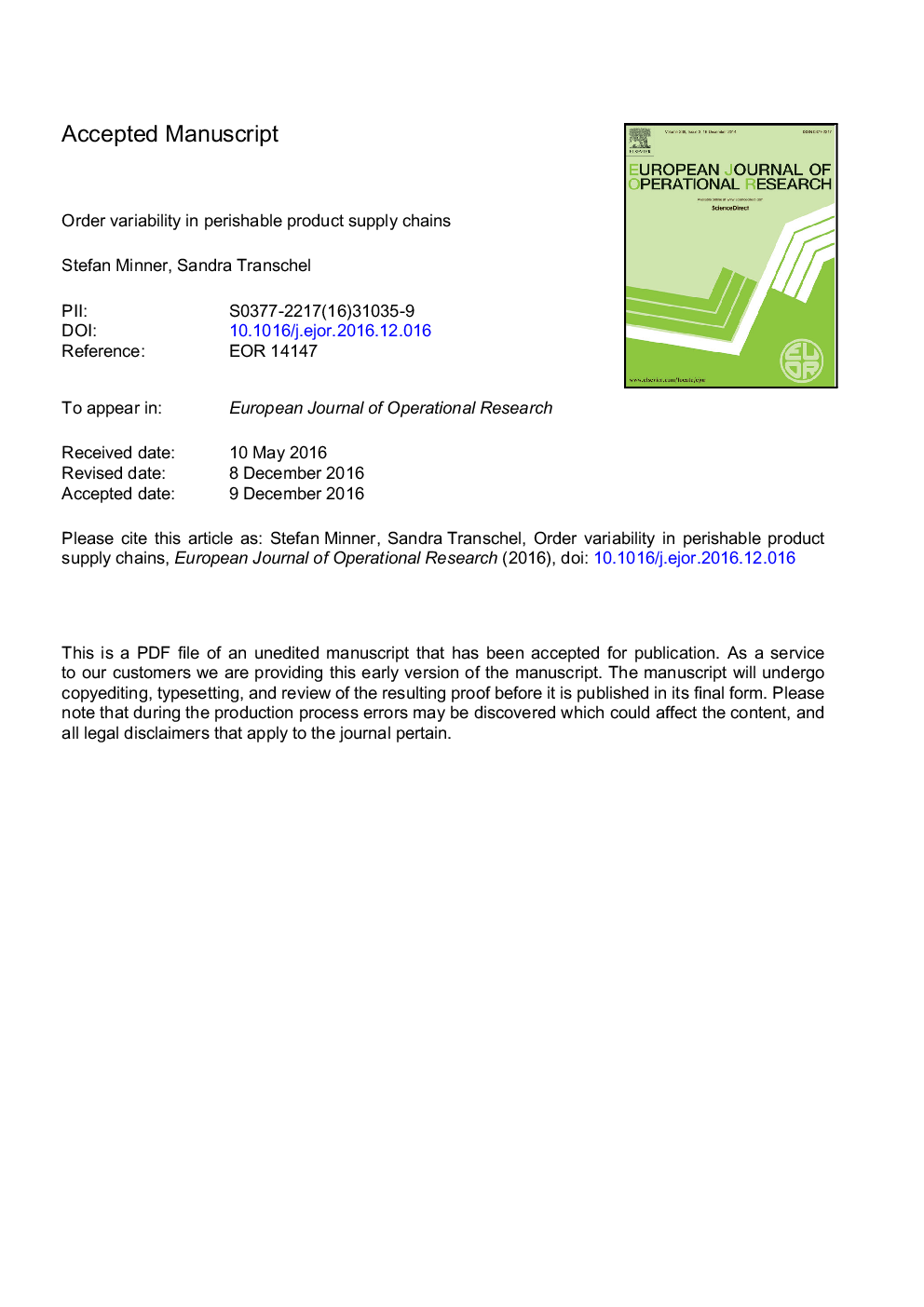| Article ID | Journal | Published Year | Pages | File Type |
|---|---|---|---|---|
| 4959880 | European Journal of Operational Research | 2017 | 37 Pages |
Abstract
Empirical research has shown that the degree of order variability in supply chains is significantly influenced by product- and industry-specific factors. This paper analyzes the impact of perishability on order variability and the bullwhip effect in supply chains. We decompose the ordering process of a retailer into a sales and an outdating process and quantify their short- and long-term variability and correlation. We find differences to non-perishable product supply chains driven by the impact of the inventory depletion policy, stock-out management, and retailers service level requirement. These three factors significantly affect the retailer's order variability and thus the decision making process and the profitability of the upstream supply stage. For the majority of instances, the perishable nature of a product results in the ordering process having a lower variability than the demand process. Only when inventory depletion is dominated by last-in-first-out in high service level environments, variability amplification can be observed. We propose a dynamic ordering policy for the upstream supply stage, taking into account negative correlation of retailer orders between periods. This dynamic policy may lead to substantial performance improvements. In a sensitivity analysis, we investigate the impact of shelf life, lead time and demand correlation.
Related Topics
Physical Sciences and Engineering
Computer Science
Computer Science (General)
Authors
Stefan Minner, Sandra Transchel,
